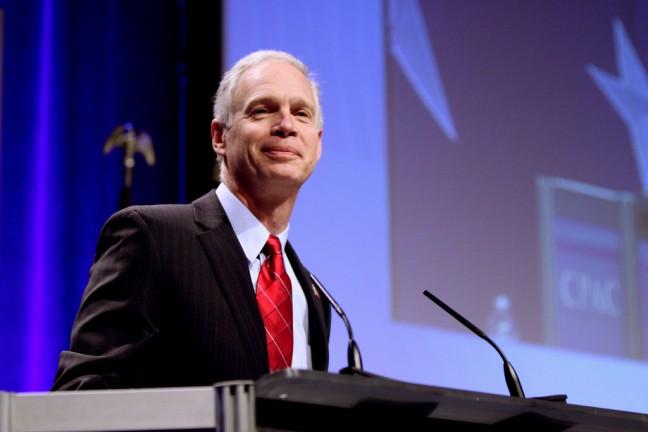The new year has just begun, but in the age of the 24-hour news cycle, it’s never too early to start discussing potential 2016 election races. U.S. Sen. Ron Johnson, R-Wisconsin, was elected during the 2010 Republican wave that brought many new conservative and Tea Party politicians into the halls of Congress. In contrast to when he was elected to the Senate as a political newcomer, it appears Johnson has a much tougher path to winning re-election in 2016.
In last November’s elections Democrats had to defend 21 Senate seats, seven of which were in states won by Mitt Romney, Republican presidential nominee, in 2012. This was one of the main factors that contributed to the Democrats losing control of the Senate. Although Republicans now control the Senate, their control may be short-lived.
Republicans will be defending 24 Senate seats, seven of which are in states won by President Barack Obama in both 2008 and 2012. Johnson has a lot to overcome if he is to retain his Senate seat, as many view him as one of the most vulnerable Republican senators running for re-election in 2016, and rightfully so.
As the Washington Post’s Chris Cillizza, Aaron Blake and Sean Sullivan wrote, “Sen. Ron Johnson starts the 2016 election cycle as the most vulnerable senator on the map. He’s undefined in the eyes of many, polling shows; and he’s running in a state that has gone Democratic in seven-straight presidential elections.” A poll released last April showed Johnson had a 34 percent approval rating, a 36 percent disapproval rating and, even after multiple years in the Senate, 30 percent didn’t know enough to have an opinion.
First, Johnson was initially elected during the 2010 midterm elections, but will be running for re-election during the 2016 presidential election. A higher percentage of eligible voters vote during presidential elections than in midterm elections, which usually increases the chances of Democratic candidates winning in swing states such as Wisconsin.
For example, Wisconsin hasn’t been won by a GOP presidential candidate since Ronald Reagan in 1984. Furthermore, as this country becomes more and more politically polarized, voters usually vote for presidential and senatorial candidates from the same political party. As the National Review’s Michael Barone writes, “there is a high correlation between voting for president and voting for Senate.” Thus, unless the GOP’s eventual presidential nominee can win Wisconsin in 2016 for the first time in 32 years, Johnson is on the outside looking in.
Furthermore, in 2016 Johnson may have to run against former senator Russ Feingold. At first glance this potential matchup seems to favor Johnson, after all, Feingold is the opponent he bested in 2010. However, the poll mentioned above also showed that Feingold had a six-point lead in a Johnson/Feingold rematch, with a 13-point lead among independent voters.
In running for re-election Johnson finds himself in a precarious situation, although it’s one of his own making. He finds himself stuck between a rock and a hard place, or to be more precise, between the conservative Tea Party and the moderate business wings of the modern Republican Party. As Johnson said, “I fully embrace the Tea Party movement. I believe Americans are taxed enough already, plus the people at the grassroots level involved in the Tea Party, they’re patriots. They are concerned every bit as much as I am — I sprang out of that.” However, he needs the votes of independents and conservative moderates to win in 2016; votes from his conservative Tea Party base won’t be enough.
Johnson will have to be careful in tailoring his political message over the next two years to remain in the Senate. His messaging needs to attract political independents, but it must do so without alienating conservative voters who got him to the Senate in the first place. This will be a difficult, if not impossible, task.
Feingold will not have that problem. He is already known for his progressive views during his tenure in the Senate, whether it was supporting campaign finance reform, universal health care, voting against the Patriot Act or the invasion of Iraq in 2002. Although he is known for his progressive views, he is also popular among independents, which is most likely a result of Feingold’s willingness to vote against his party when necessary. In fact, Feingold voted against his party 97 times as a senator, which was the most of any senator when he left the Senate in 2010.
Not only is Feingold popular with progressive and independent voters, he has the respect of very conservative members of Congress. As former senator Tom Coburn, R-Oklahoma., said of Feingold in 2010 on the Senate floor, “Senator Feingold is my idea of a great senator.” He continued, “I have watched one man of great integrity keep his word and hold to his values through every crisis and every vote.”
Johnson has a lot to be worried about in his re-election bid, especially if Feingold decides to run.
Aaron Loudenslager ([email protected]) is a third year law student.








